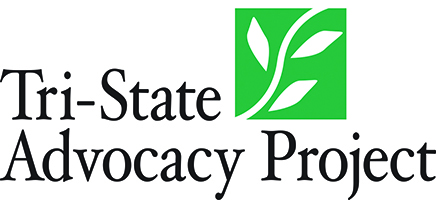Tristate Advocacy Project: Helping Patients Gain Access to the Care and Coverage They Deserve
By Sarah Thomson, Research Assistant, Center for Neuropsychology and Neuroscience,
Kessler Foundation
 After a traumatic injury, caregivers and patients are left with a common, yet challenging question: now what? Adjusting to life after a traumatic injury comes with its own set of complications, but the financial burden of rehabilitation and inpatient care makes this adjustment even more difficult. Patients often don’t know what questions to ask or how to find resources that will allow them to live on their own and maintain their quality of life. With the help of organizations like the Tristate Advocacy Project, patients can gain access to the support and guidance they need, free of charge, throughout their recovery.
After a traumatic injury, caregivers and patients are left with a common, yet challenging question: now what? Adjusting to life after a traumatic injury comes with its own set of complications, but the financial burden of rehabilitation and inpatient care makes this adjustment even more difficult. Patients often don’t know what questions to ask or how to find resources that will allow them to live on their own and maintain their quality of life. With the help of organizations like the Tristate Advocacy Project, patients can gain access to the support and guidance they need, free of charge, throughout their recovery.
The Tristate Advocacy Project is a privately funded advocacy organization that helps patients and families gain access to helpful financial resources after their injuries. Founder Cindy Clarke lost her father to a C1-C2 spinal cord injury in 2002, and as a caregiver, she struggled to navigate the complexities of the U.S. healthcare system. Because she had a particularly difficult time getting accurate and consistent information from government agencies, Cindy decided to start an organization that would aid patients in identifying and utilizing available funding resources. Patients could then afford the necessary rehabilitation and support services to maximize independence after their injuries.
The organization she founded assists children and adults with traumatic brain injuries, spinal cord injuries, cerebral palsy, and burn-related injuries. The Project’s advocates are available to provide consultation and support starting when patients receive treatment in acute care facilities. During this early phase of recovery, the organization serves as a mediator between the physicians advising longer inpatient stays and insurance companies pushing for early discharge. By advocating for the patient in the acute care phase, the organization can negotiate extended inpatient recovery time and increased coverage of rehabilitation services.
After patients leave acute care facilities, advocates determine patient eligibility for government benefits and provide expert insight into completion and submission of applications for Medicaid, Social Security, and disability benefits. Advocates are well versed in submitting successful appeals and can help patients get the coverage and compensation to which they are entitled. If a patient isn’t eligible for government benefits, advocates analyze all other potential sources of funding. They put patients in touch with personal assistance programs, housing programs, and loan programs in the community to help alleviate the financial burden of in-home care and home modifications.
The Tristate Advocacy Project serves patients in New Jersey, Pennsylvania, New York, Maryland, Delaware, Virginia, Florida, and Hawaii, and they are still growing. All of the Project’s services are free of charge, and advocates devote the entirety of their time and resources to serving patients and families, making them a unique and valuable asset to the community they serve.
For More Information
If you or someone you know has recently sustained a traumatic brain injury, you can contact the Tristate Advocacy Project for assistance and consultation. Call them at 1.877.774.6380. Translational services are also available for non-English speakers.
Learn more about Kessler Foundation's traumatic brain injury research.
